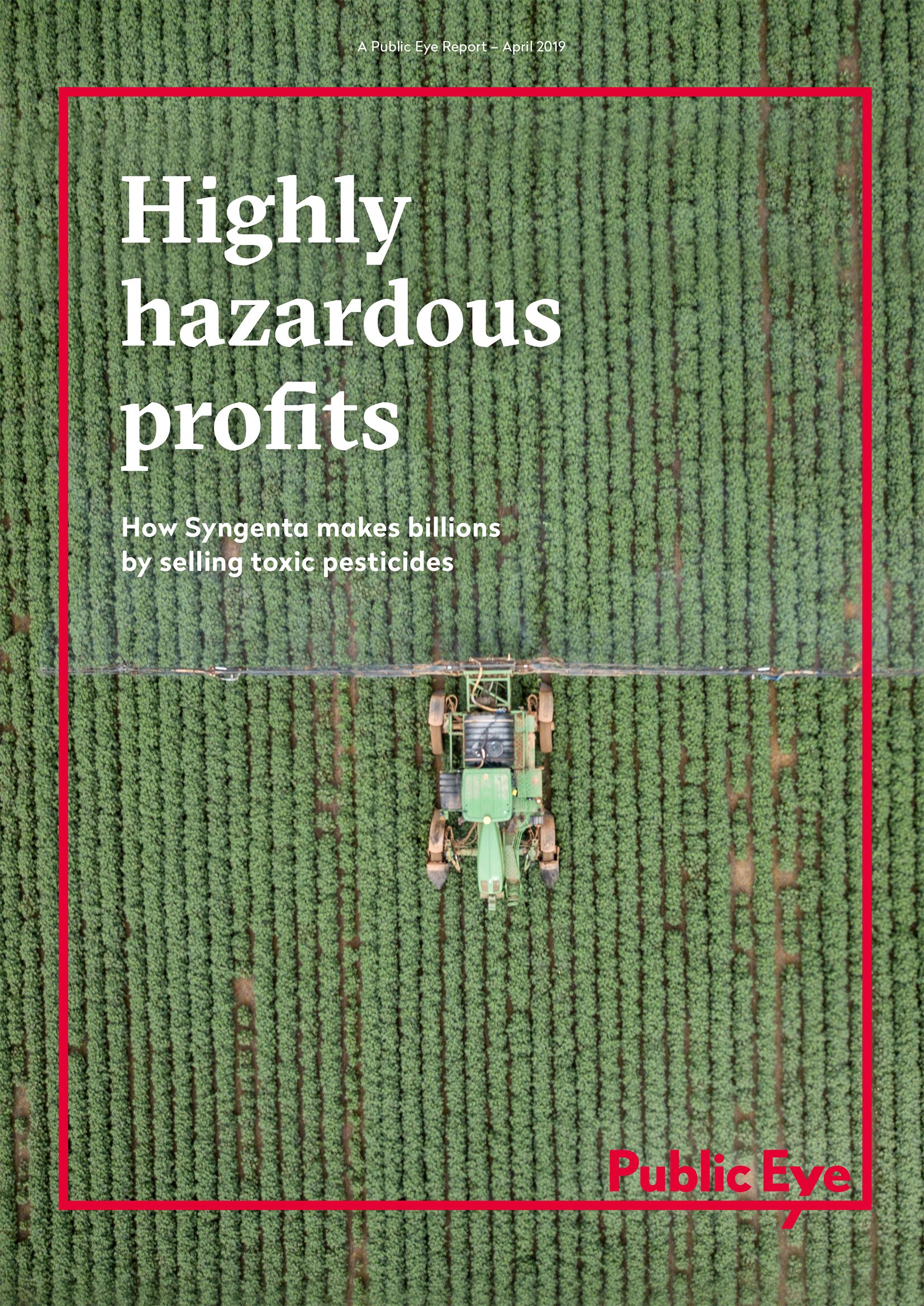Highly Hazardous profits in Brazil
 ©
Lunaé Parracho/Reuters
©
Lunaé Parracho/Reuters
Highly Hazardous Profits (Public Eye report, 2019)
Brazil is the largest user of the most toxic pesticides. According to our analysis of the official statistics published by the Ministry of the Environment (IBAMA), about 370,000 tonnes of highly hazardous pesticides were sprayed on agricultural fields in the country in 2017 – approximately 20% of the worldwide use.
A significant part of the pesticides applied in Brazil are “highly hazardous”. 153 of the 528 active ingredients authorized for use in Brazil are on the PAN list of highly hazardous pesticides. The proportion of HHPs is even higher for the most widely used pesticides in the country: seven of the “top 10” pesticides are on the PAN list of HHPs. About 30% of registered pesticides are not authorized in Switzerland and the European Union.
Public Eye investigated in Brazil to understand the consequences of the widespread use of highly hazardous pesticides on the population.
Pesticides: a growing health concern
Evidence of the link between pesticides and elevated rates of chronic diseases in Brazil is accumulating. Researchers and government agencies are warning that pesticides constitute a major public health concern in the country. Studies are documenting disturbing rates of cancers, birth defects, and other chronic diseases in regions where pesticide use is highest. In 2015, the Brazilian National Cancer Agency (INCA) issued a statement against current practices of pesticide use and warned of the increased risk of chronic diseases. INCA also warned that the health consequences of the rapid increase of pesticide use in Brazil might only be starting to be felt, “as chronic diseases develop sometimes many years after exposure”.



